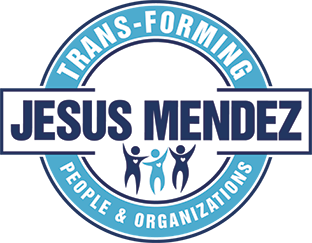Today, I want to share another story from my friend Tom Agile about emotional intelligence skills in an agile context. In addition, I’ll expose some of the challenges that he has faced, also I would like to share a couple of tips, tricks and tools that have helped him improve his emotional intelligence skills, specifically self-awareness.
But first, let’s get some alignment with the vocabulary that I’ll be referring to; by introducing what Emotional Intelligence is.
Emotional Intelligence refers to the ability to identify, use, understand, and manage emotions in positive ways to relieve stress, communicate effectively, empathize with others, overcome challenges, and defuse conflict.[1] It also consists of four domains that have 22 categories [2]:
Self-awareness
- Emotional Self-Awareness
- Accurate Self-Assessment
- Self-confidence
- Self-management
Emotional Self-Control
- Transparency (Trustworthiness)
- Adaptability
- Achievement
- Orientation
- Initiative
- Optimism
- Conscientiousness (Hay Group)
Social Awareness
- Empathy
- Organizational Awareness
- Service Orientation
Relationship Management
- Inspirational Leadership
- Influence
- Developing Others
- Change Catalyst
- Conflict Management
- Building Bonds
- Teamwork and Collaboration
- Communication (Hay Group)
Context
Tom likes to be close to people, he really enjoys that. In fact, he has the ability to sense the vibes of a room, once he gets into it. He is sensitive enough to feel people’s pain with no mention of it, he will know when something is going on. I considered Tom to be really patient, which allows him to observe other’s behavior, and that’s what he had done while working with this two (2) Agile teams during the last month; we are talking about ten (10) Software Developers, two (2) Product Owners and two (2) Line Managers that make up the teams.
Challenge
Tom spends his days sharing his time between both teams’ ceremonies, he also coaches some people (team members and other people within the organization) before the team ceremonies start. He also has been invited to facilitate some meetings in a non-Scrum manner.
As you can imagine, Tom deals with people all day long. He is exposed to other people’s feelings and emotions quite often every single day. So what about it? Who cares about emotions when working with people? Is that important for Leaders? Let’s explore it together and take a closer look at some facts.
Facts
– Tom is a leader, so then, his stand matters. In fact, how Tom manages his emotions and how well he knows himself, will have a direct impact on teams and the expected outcome when facilitating, coaching or just helping others.
– As Scrum Master/Agile Coach Tom has no formal training in Emotional Intelligence but his work relies 100% on those skills.
– Tom has to deal with context change all day long, but the organization expects the best from him in terms of self-management; in order to maximize people’s performance and to increase meetings efficiency, avoid losing money and increase revenue.
– Sometimes, Tom has lost and his leadership has been compromised, his credibility has been exposed and people start to doubt his capacity to deal with the responsibility.
– The more equipped Tom is (in terms of emotional intelligence), then the team will have better examples to follow.
Tips & Tricks
Self-awareness
– Get a coach. Set the example and get yourself a coach to help you reflect on your behaviors, attitudes and possible patterns. When coaching others you would also need to be coached.
– Discover your personal strengths. Leading with your strengths; would be Tom’s recommendation. He has used the Clifton strength finder to assess and discover his unique combination of strengths.
– Validate your personal image against others. Tom likes to use this question to get others feedback about his leadership skills: When have I been at my best? He asks the same question to ten (10) different people and look for patterns in the answers. [Professor Richard E. Boyatsis]
– Be vulnerable. Open yourself to others. Tom has shown that he is human, and as humans, we sometimes find that things are difficult and that could make us feel good or bad. Exposing that openly has helped Tom to get recognition and create high level connections.
Personal Reflection
A high level of Emotional Intelligence is one of the most important skills that a leader will need when facing hard times. I’m strongly convinced that getting to know yourself better, will allow you to acknowledge emotions and feelings. That is the start of an amazing journey that will lead you and your people to surprising places. So don’t hesitate and go for it, fight your fears!
Curiosity
– What about you?
– How do you face emotions and feelings when working with people?
What’s next?
In our next post, I will be sharing more about Tom’s experiences regarding emotional intelligence self-management skills and how he and his colleagues are doing when facing different situations in the field.
Curious about how I do it, let’s get in touch. Join the conversation by subscribing to our email list at www.jesusmendez.ca
Jesus

